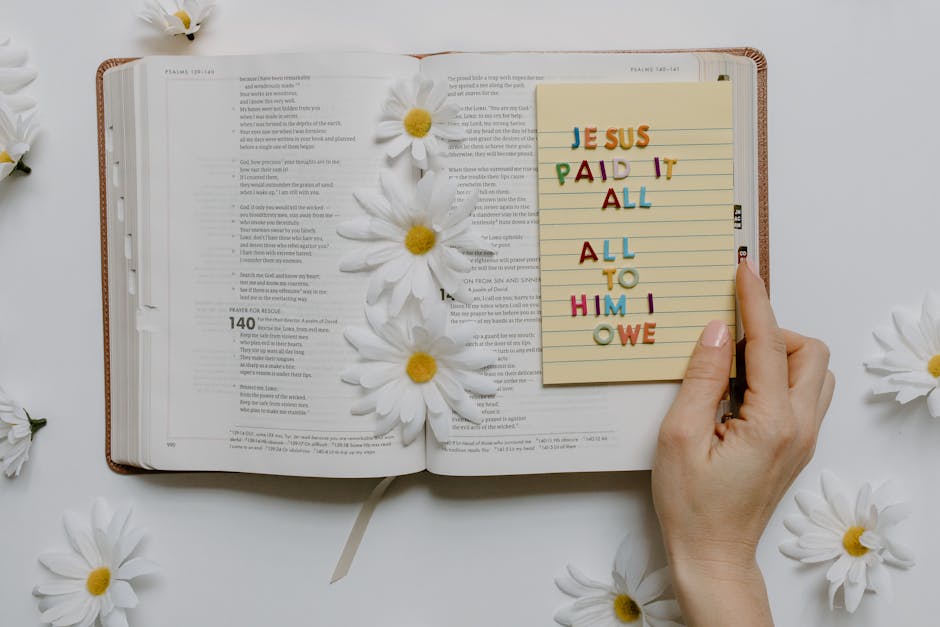Tips for Creating a Spiritual Routine
In todays fast-paced world filled with distractions and stress, many people are turning to spirituality to find peace, purpose, and connection. A spiritual routine can provide a sense of grounding, inner harmony, and a deeper understanding of oneself and the world. Whether you are embarking on a spiritual journey or looking to deepen your existing practice, creating a spiritual routine can be a transformative experience. In this article, we will explore various tips for developing a spiritual routine that resonates with you and supports your spiritual growth.
The Importance of a Spiritual Routine

Before delving into the tips for creating a spiritual routine, it is essential to understand why having a spiritual practice is important. A spiritual routine can help you cultivate mindfulness, self-awareness, and a sense of connection to something greater than yourself. It can also provide a framework for personal growth, healing, and transformation. By incorporating spiritual practices into your daily life, you can nurture your soul, reduce stress, and enhance your overall well-being.
Research has shown that engaging in spiritual activities such as meditation, prayer, and reflection can have a profound impact on mental, emotional, and physical health. Studies have linked spiritual practices to reduced anxiety, depression, and improved resilience in the face of challenges. Additionally, spiritual routines can help you cultivate a sense of purpose, meaning, and fulfillment in life.
1. Set Your Intentions

One of the first steps in creating a spiritual routine is to set clear intentions for your practice. Take some time to reflect on what you hope to achieve through your spiritual routine. Are you seeking inner peace, clarity, healing, or guidance? By clarifying your intentions, you can tailor your spiritual practice to align with your goals and aspirations.
Setting intentions can also help you stay focused and motivated on your spiritual journey. Write down your intentions and revisit them regularly to remind yourself of why you are engaging in spiritual practices. Whether you are starting your day with a morning meditation or winding down with an evening prayer, anchoring your practice in your intentions can bring a sense of purpose and direction to your spiritual routine.
2. Create a Sacred Space

Creating a sacred space for your spiritual practice can enhance the quality of your experience and deepen your connection to the divine. Your sacred space can be a room in your home, a corner of a room, or even a serene outdoor spot. Decorate your space with items that hold spiritual significance for you, such as crystals, candles, incense, or religious symbols.
Make your sacred space inviting and peaceful, free from distractions and clutter. You can also incorporate elements of nature, such as plants or natural materials, to create a harmonious environment. By designating a sacred space for your spiritual practice, you can signal to your mind and spirit that it is time to connect with the divine and nourish your soul.
3. Establish a Routine

Consistency is key when it comes to creating a spiritual routine. Establishing a daily or weekly schedule for your spiritual practices can help you stay committed and make your practice a priority in your life. Whether you prefer to meditate in the morning, journal in the evening, or attend religious services on the weekends, find a routine that works for you and stick to it.
Remember that a spiritual routine is not about perfection but about showing up for yourself and your spiritual growth. Be gentle with yourself if you miss a day or deviate from your routine. The important thing is to return to your practice with compassion and dedication. Over time, your spiritual routine will become a natural and integral part of your life.
4. Explore Different Practices
There are countless spiritual practices and traditions to explore, ranging from meditation and prayer to yoga and chanting. One of the benefits of creating a spiritual routine is the opportunity to experiment with different practices and find what resonates with you. Be open to trying new things and incorporating a variety of spiritual activities into your routine.
Pay attention to how different practices make you feel and how they impact your overall well-being. You may discover that certain practices help you feel more grounded, centered, or connected to the divine. Listen to your intuition and follow the path that feels most authentic and nourishing to your soul.
5. Seek Guidance and Support
Embarking on a spiritual journey can be a deeply personal and transformative experience. However, it can also be helpful to seek guidance and support from spiritual teachers, mentors, or community members. Connecting with like-minded individuals who share your spiritual beliefs and values can provide encouragement, inspiration, and a sense of belonging.
Attend spiritual workshops, retreats, or gatherings to deepen your practice and expand your understanding of spirituality. Engaging in group activities can also help you cultivate a sense of community and connection with others on a similar path. Remember that you are not alone on your spiritual journey, and there are resources and support available to help you along the way.
6. Reflect and Journal
Reflection and journaling can be powerful tools for deepening your spiritual practice and gaining insight into your inner world. Take time each day to reflect on your thoughts, emotions, and experiences during your spiritual practices. Write down any insights, revelations, or messages that arise during your meditation, prayer, or contemplation.
Journaling can also help you track your spiritual growth and progress over time. Reviewing your journal entries can reveal patterns, themes, and areas of growth that you may not have been aware of. Consider keeping a gratitude journal to cultivate a sense of appreciation and abundance in your life. By reflecting and journaling regularly, you can deepen your self-awareness and connection to the divine.
7. Practice Gratitude and Mindfulness
Cultivating a spirit of gratitude and mindfulness can enrich your spiritual practice and bring more joy and presence into your life. Take time each day to express gratitude for the blessings and abundance in your life, no matter how small. Consider keeping a gratitude journal or incorporating a gratitude practice into your spiritual routine.
Practice mindfulness by bringing your awareness to the present moment and observing your thoughts, emotions, and sensations without judgment. Mindfulness can help you cultivate presence, clarity, and inner peace in your daily life. Incorporate mindfulness practices such as deep breathing, body scans, or mindful walking into your spiritual routine to enhance your connection to the divine.
Common Misconceptions
One common misconception about creating a spiritual routine is that it requires a significant time commitment or extensive knowledge of spiritual practices. In reality, a spiritual routine can be tailored to fit your schedule and preferences, whether you have five minutes or an hour to dedicate to your practice each day. It is also important to remember that spirituality is a personal journey, and there is no one-size-fits-all approach to creating a spiritual routine.
Conclusion
To wrap things up, creating a spiritual routine can be a rewarding and transformative experience that nurtures your soul, enhances your well-being, and deepens your connection to the divine. By setting clear intentions, creating a sacred space, establishing a routine, exploring different practices, seeking guidance and support, reflecting and journaling, and practicing gratitude and mindfulness, you can cultivate a meaningful and fulfilling spiritual practice that resonates with your soul.
Remember that spirituality is a journey of self-discovery, growth, and transformation. Be patient and compassionate with yourself as you navigate your spiritual path and trust in the process of unfolding. Your spiritual routine is a reflection of your inner world and a sacred space for you to connect with your true essence and the divine presence within you.




